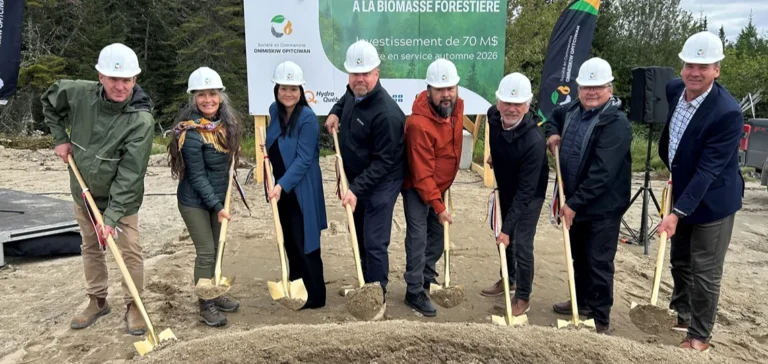The Canada Infrastructure Bank (CIB) has completed a $24mn loan to enable the Atikamekw community of Opitciwan, located in northern Quebec, to begin an energy transition aimed at reducing its reliance on diesel as its main electricity source. This financial package supports the construction and operation of a 4.8-megawatt biomass cogeneration plant.
Utilising local resources and reducing diesel dependency
The project, led by Onimiskiw Opitciwan Limited Partnership, is based on the use of wood by-products—bark, sawdust, and wood chips—from a neighbouring sawmill. The thermal energy generated will also supply a new wood kiln, further strengthening the local economy. The installation is expected to reduce annual diesel consumption by 4.6 million litres and aims to decrease frequent outages on Opitciwan’s autonomous electricity network, which serves around 2,500 inhabitants.
Forecasts indicate a reduction of over 11,000 tonnes of pollutant emissions per year, mainly nitrogen oxides and sulphur oxides associated with heavy diesel use for electricity generation. The project foresees the creation of 40 jobs during the construction phase, as well as 15 direct and indirect jobs during operation.
Strengthening the network and economic outlook
The scheme also involves building a new electrical substation and a battery energy storage system, implemented by Hydro-Québec, to improve the stability of the local network. Designed to support demographic growth, the plant has the capacity to underpin future housing projects within the community.
Project managers suggest this model could serve as a reference for other Indigenous communities in Quebec and across Canada seeking to reduce diesel reliance through renewable and local resources. The CIB’s Indigenous Community Infrastructure Initiative specifically targets such projects to support the development of alternative energy solutions in remote regions.
Sector challenges and community development
Government authorities highlight the impact of the project on energy autonomy and the local economic fabric, noting the plant’s capacity to provide reliable supply while generating employment opportunities. The Chief of the Atikamekw Nation of Opitciwan has expressed the community’s determination to leverage its own resources to improve energy security and boost local economic activity.
This operation is part of ongoing public investment in energy infrastructure in northern Quebec, where supply reliability and the valorisation of local raw materials are major priorities for community development.






















